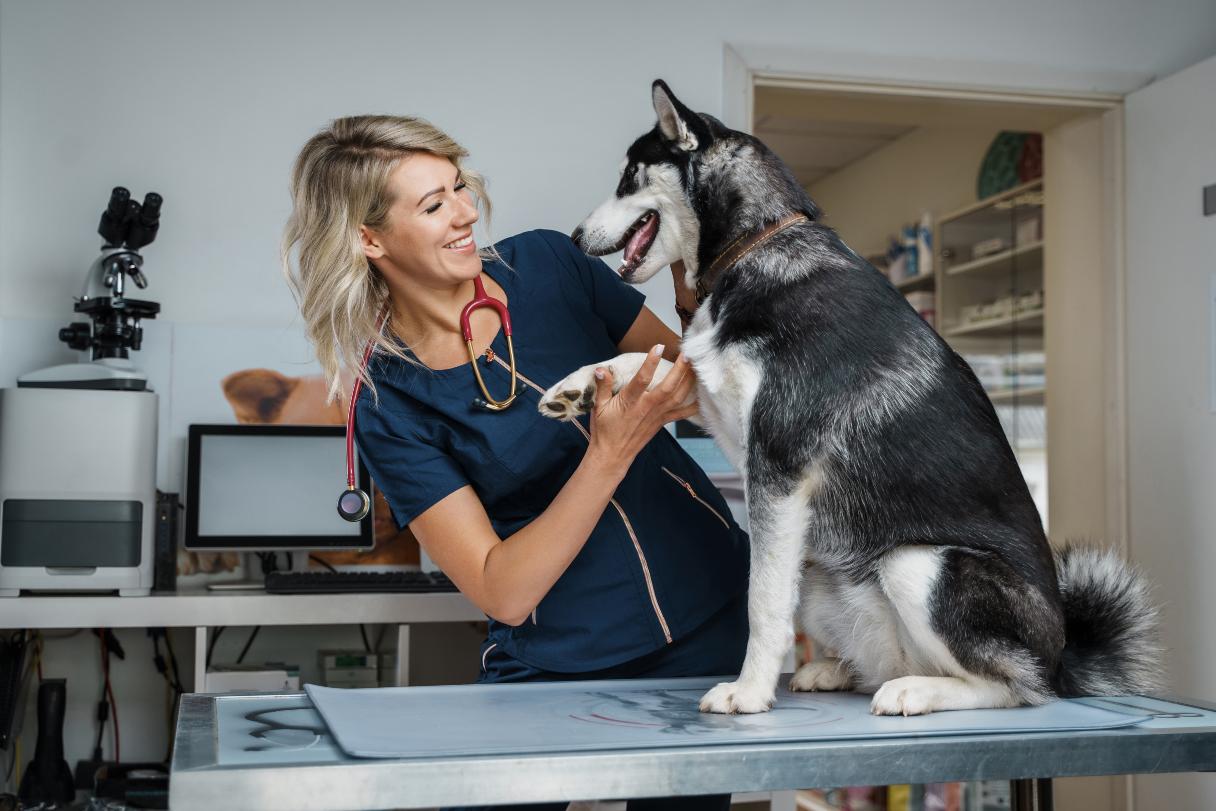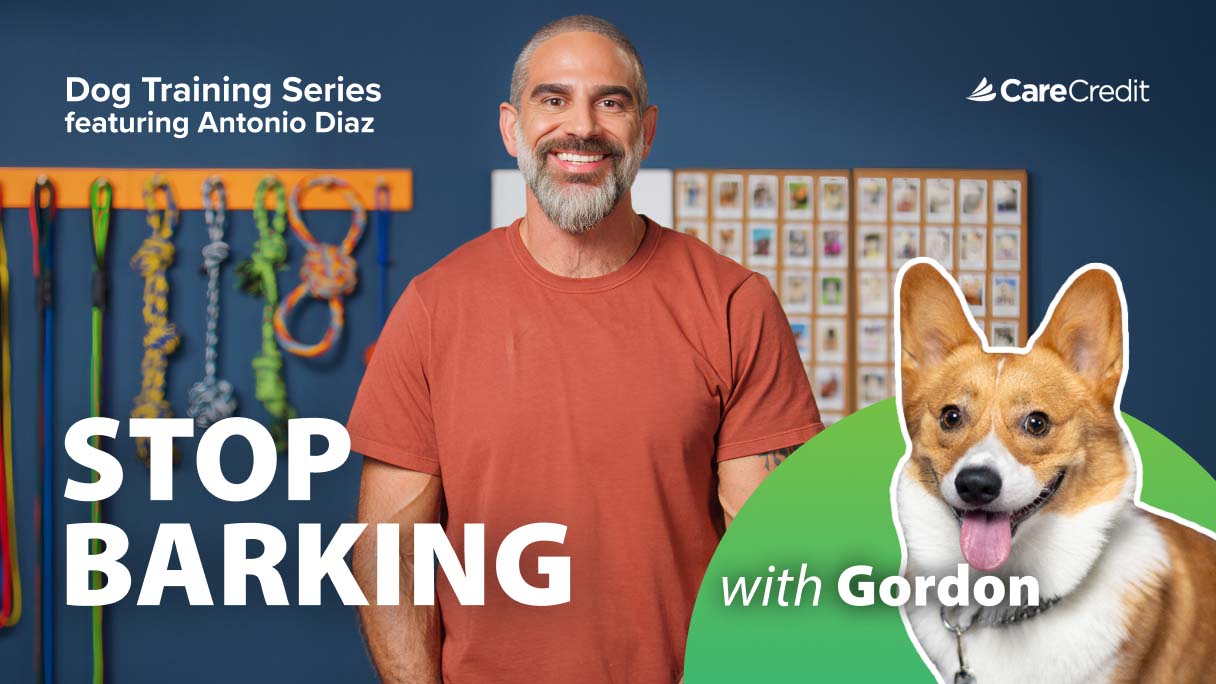How Often Should Dogs Have a Wellness Exam?
Typically we recommend that adult pets are seen yearly throughout the adult portion of their lives. Puppies, adolescent and senior pets may need more frequent visits throughout those stages of their lives.
Why Is a Wellness Exam Important?
The wellness exam is important because we're assessing the pet when its healthy. When we see a pet who's sick, this allows us to compare it to its healthy state in order to identify potential changes that might alert us to a problem. Additionally, we can really focus on all the important aspects of a dog's vitality that extends their quality and length of life, like nutrition, exercise, and body weight.
What Exactly Is the Process of a Dog Wellness Exam?
Initially, we take a really good history to learn about the pet's lifestyle — its nutrition, its exercise regime, whether the pet is insured, the stimulation in its environment, its training, etc. Our veteran nurses will take all the basic measurements. Then the doctor would thoroughly examine that pet from nose to tail, looking at all the different body systems. And then together with the client we would outline our findings and put together a really solid plan to correct any issues we've identified.
What Do You Look for When a Dog Comes in for an Exam?
With a comprehensive exam, we're searching for anything abnormal, such as a bump or a lump, which we would assess and determine what it is. If it's been identified previously, we might compare the size to determine if there's been a change. Also, just like in humans, we see high incidences of dental disease, obesity, arthritis, skin problems. When I'm examining a pet, I'm assessing those areas to ensure that there's no disease in those different body systems.
How Can Pet Owners Prepare Their Dog for a Wellness Exam?
It starts when they are puppies and kittens and really young to ensure they have a great experience. We really focus on that behavioral desensitization training from early on. There's a number of initiatives out there. Our practices endorse "fear free," which is a concept around removing the fear experience from pets when they go to the vet hospital.
This makes the pets easy to examine. It also means their owners are less stressed with the experience. It's really about giving your pet positive experiences at the veterinary hospital, and the veterinary staff can contribute to that with treats. If your pet is food motivated, that really helps.
Is a Wellness Exam a Good Time to Ask About Optimal Weight?
Weight control is a fundamental part of animal health. Your veterinarian should be asking those questions (about diet and exercise) and helping you understand some standards around your pet's optimal weight.
When clients come to our clinics our veterinarian nurse team will ask questions like, what diet are you on? They'll assess the body condition and score the pet. They'll ask about exercise routines and lifestyle. So once I've examined the pet, I can then give the client guidelines on how they might improve exercise routines or change lifestyle or adjust the diet to set that pet up for a long, healthy life.
What Vaccines Should Dogs Get at Each Stage of Their Life?
It varies based on region, so you'll need to check the local guidelines for dog vaccines with your vet. In the Bay area, for example, rabies is mandatory. The distemper, hepatitis and parvovirus vaccine is not mandatory, but it is a core vaccine that we would recommend. Leptospirosis is really considered a core vaccine as well. Other vaccines that we consider around here, particularly for dogs that are socializing, are the bordetella and parainfluenza vaccines.
What's a Typical Vaccination Schedule for Puppies?
Vaccines can start from as early as four to six weeks. But typically the vaccination schedule that we follow is seeing a puppy for the first time at eight weeks of age, which is when they will start their initial series of vaccines. They would then be boosted three to four weeks later at around 12 weeks of age. And then again, I'd get a third booster three to four weeks later at around 16 weeks.
The reason we do numerous vaccines early on is because nursing puppies absorb maternal antibodies which can actually destroy the vaccine. It's not until those antibodies wane that the pet will develop immunity, and we don't quite know when they wane. It's probably somewhere between 12 and 16 weeks, maybe as late as 20 weeks. So we keep giving vaccines, hoping that one of them is going to immunize the pet.
What Does a Healthy Dog or Puppy Look Like?
I want to see some real spunk in that puppy. They should be lively and energetic. They should have good general mental activity and alertness. A puppy should have significant outbursts of energy, but they'll also sleep. You know, they're still growing so there will be periods of sleep and high energy.
I also want to see a healthy appetite and good weight gain. I want to see normal urination and defecation. As pets get older and move into adolescence and adulthood, the ups and downs of sleep and energy will change. But I'm still looking for a dog that's energetic, responsive, bright, and interested in its surroundings.
CareCredit Financing For Dogs
The CareCredit credit card provides a convenient way to pay for your dog's vaccinations and other health and wellness expenses, including exams, medications, and products at providers in the CareCredit network.** Apply today and continue your wellness journey by downloading the CareCredit Mobile App. You can find a provider on the go, manage your CareCredit account, and easily access the Well U hub for more great articles, podcasts, and videos. Use our Acceptance Locator to find a veterinarian that accepts CareCredit to help keep your pet healthy and happy for a lifetime of love.
Author Bio
Jean Marie Bauhaus is a novelist and freelance writer who has been writing in the pet health and wellness space since 2014. She is a regular contributor to Hill's Pet and American Kennel Club, among others.
Meet the Expert
Dr. Andrew Moffatt is from Melbourne, Australia and is the founder and CEO of VetnCare, a growing group of AAHA accredited veterinary hospitals in the San Francisco Bay Area.










